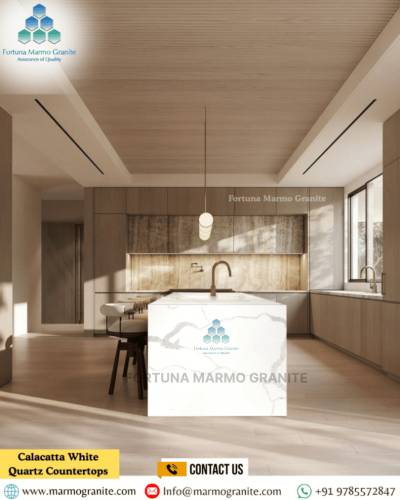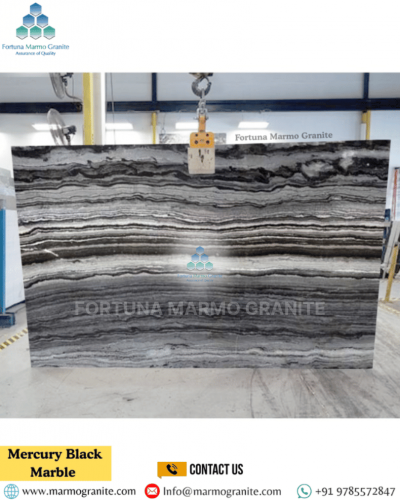Pros and Cons of Quartz vs Marble Making the Right Decision
Pros and Cons of Quartz vs Marble Choosing the perfect countertop material is a significant decision for any kitchen or bathroom renovation. It impacts not only the aesthetics but also the functionality and longevity of your space. Among the myriad options available, quartz and marble consistently emerge as top contenders, each boasting unique characteristics that appeal to different homeowners. But which one is right for your home? This blog will delve deep into the pros and cons of quartz and marble, helping you make an informed decision that you'll be happy with for years to come.
Moreover, Pros and Cons of Quartz vs Marble From their durability, resistance to stains, and ease of maintenance, to their color variation, texture, and overall appeal, we'll guide you through everything you need to know before making your choice. Whether you prefer a classic, timeless look or a more contemporary style, understanding these distinctions will enable you to select a countertop that not only resonates with your design preferences but also stands up to daily wear and tear. So, let's explore the world of quartz and marble together and discover which one is the best match for your home's unique needs and character.


Quartz vs. Marble: An Introduction
Marble: Moreover, A natural stone formed from crystallized minerals, primarily calcite. It's quarried from the earth in large slabs, showcasing unique veining and color patterns that are the result of impurities present during its formation. Each slab of marble is truly one-of-a-kind, a testament to geological artistry.
Quartz: In addition, An engineered stone composed primarily of ground quartz crystals (typically 90-95%) combined with resins, polymers, and pigments. This mixture is then molded into slabs. Because it's engineered, quartz offers a wider range of colors and patterns, many of which mimic natural stone, including marble.
Marble: The Epitome of Timeless Elegance
Pros of Marble:
- Unparalleled Aesthetic Appeal: Moreover, This is arguably marble's biggest draw. Its natural beauty, with its soft, luminous quality and intricate, unique veining, is simply breathtaking. No two slabs are identical, meaning your countertop will be truly bespoke. It exudes a classic, timeless elegance that instantly elevates any space.
- Increases Home Value: In addition, Due to its luxurious reputation and natural origins, marble countertops can significantly increase the resale value of your home. It's often seen as a high-end upgrade.
- Naturally Cool Surface: Marble remains naturally cool to the touch, making it an excellent surface for baking and pastry making. Dough doesn't stick as easily, and butter stays firm.
- A "Living" Material: Yet, Many marble enthusiasts appreciate that it develops a patina over time, a subtle softening of its appearance from use and exposure. They see this as part of its charm and character, a reflection of the life lived around it.
- Eco-Friendly (in some aspects): As a natural stone, marble is a gift from the earth. Its extraction and processing generally have a lower carbon footprint compared to the manufacturing of engineered stones, provided responsible quarrying practices are followed.
Cons of Marble:
- Porous and Prone to Staining: Additionally, This is marble's most significant drawback. It's a highly porous material, meaning liquids can seep into its surface and cause stains. Red wine, coffee, olive oil, and acidic substances like lemon juice or vinegar can leave permanent marks if not wiped up immediately.
- Susceptible to Etching: Acidic substances react with the calcium carbonate in marble, causing a dull mark known as etching. This isn't a stain but a chemical reaction that changes the stone's finish, making it appear lighter or duller. Even water left to dry can leave etch marks.
- Soft and Prone to Scratching/Chipping: Compared to quartz, marble is a relatively softer stone. It's more susceptible to scratches from knives or abrasive cleaners, and accidental impacts can lead to chips, especially around edges.
- Requires Regular Sealing: To mitigate its porosity and reduce the risk of staining, marble countertops require regular sealing – typically once or twice a year, depending on usage and the type of sealer used. This is an ongoing maintenance task.
- High Maintenance: Beyond sealing, marble demands careful cleaning. Harsh chemicals, abrasive scrubbers, and even strong alkaline cleaners can damage its surface. Mild soap and water are usually recommended. Spills need immediate attention.
Quartz: The Modern Marvel of Engineered Stone
Pros of Quartz:
- Exceptional Durability and Hardness: Quartz is one of the hardest minerals on earth. Engineered quartz countertops inherit this property, making them incredibly durable and resistant to scratches, chips, and cracks. They can withstand heavy daily use in busy kitchens.
- Non-Porous and Stain Resistant: Unlike marble, quartz is non-porous. The resins used in its composition create a sealed surface that prevents liquids from penetrating, making it highly resistant to stains from coffee, wine, oils, and most household spills. This makes it a hygienic choice as well, as it doesn't harbor bacteria.
- No Sealing Required: Thanks to its non-porous nature, quartz never needs to be sealed. This eliminates a significant maintenance task and ongoing cost associated with natural stone.
- Low Maintenance: Cleaning quartz is a breeze. Warm water and mild soap are typically all that's needed for daily cleaning. It can withstand most common household cleaners without damage.
Cons of Quartz:
- Susceptible to Heat Damage: While durable, quartz is not invincible, especially when it comes to heat. The resins used in its manufacturing can be damaged by extreme heat, leading to discoloration, scorching, or cracking. Trivets and hot pads are essential under hot pots and pans.
- Can Discolor Over Time with UV Exposure: Prolonged exposure to direct sunlight, particularly in outdoor applications or areas with large windows, can cause some quartz colors to yellow or fade over time. This is less of an issue indoors with typical lighting.
- Less Natural Feel: While quartz can mimic natural stone beautifully, some people find that it lacks the unique depth and organic feel of true marble. It can sometimes appear more uniform or "perfect," which some prefer, but others find less authentic.
Making the Right Decision: Which Material is for You?
Choose Marble if:
- Prioritize unparalleled natural beauty and unique veining. You desire a truly one-of-a-kind countertop that tells a story.
- Appreciate the idea of a "living" material that develops a patina over time and are willing to embrace its imperfections as part of its character.
- Are prepared for and committed to regular maintenance including sealing and immediate spill cleanup.
- Have a budget that accommodates both the initial cost and ongoing care.
- Are willing to be careful and diligent in your kitchen habits to protect your investment.
- Seek a timeless, classic, and luxurious aesthetic that significantly boosts home value.
Choose Quartz if:
- Prioritize low maintenance and ease of care. You want a countertop that can withstand daily life without constant worry.
- Need a highly durable and stain-resistant surface that can handle spills and heavy use in a busy household.
- Desire a wide range of consistent colors and patterns to match your specific design vision, including excellent natural stone mimics.
- Prefer a non-porous and hygienic surface for your kitchen and bathroom.
- Are looking for a reliable and predictable material in terms of performance and appearance.
- Are happy to use hot pads and trivets to protect your surfaces from extreme heat.
- Budget allows for a quality engineered product that offers long-term performance.
Conclusion
When choosing between quartz and marble for your countertop, there's no one-size-fits-all answer — it truly comes down to your preferences, lifestyle, and budget. Yet, Pros and Cons of Quartz vs Marble Quartz stands out for its remarkable durability, resistance to stains, low maintenance, and wide range of color options, making it a convenient choice for busy spaces that need to keep up with daily routines. Marble, meanwhile, offers a timeless, sophisticated allure with its unique veining, rich texture, and classic appeal — perfect for adding character and warmth to your home.
Indian Granite Supplier At Fortuna Marmo Granite, we specialize in helping you make the right decision by offering an extensive selection of both quartz and marble, alongside expert guidance to aid you in choosing the material that best reflects your style and functional needs. Moreover, Our team is passionate about delivering not just a product, but a complete solution — from selecting the perfect stone to expert installation — ensuring your space stands out with enduring quality and natural elegance.

